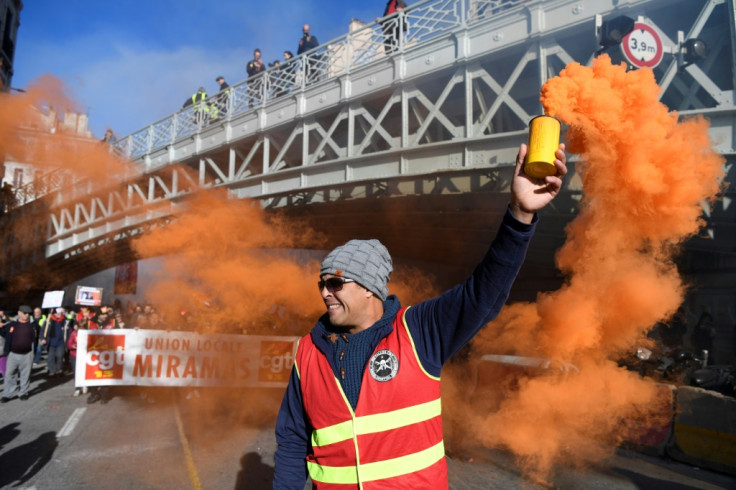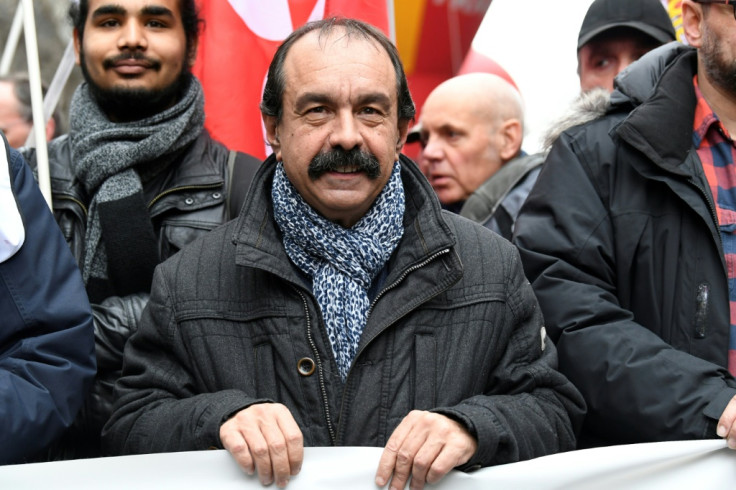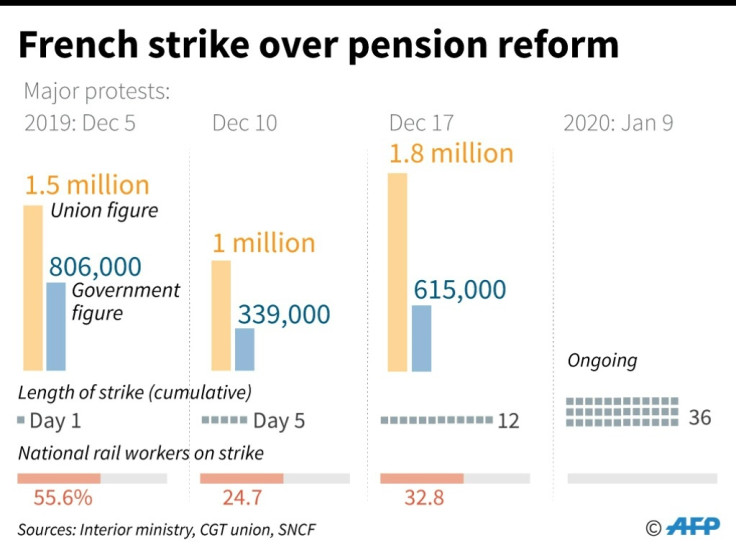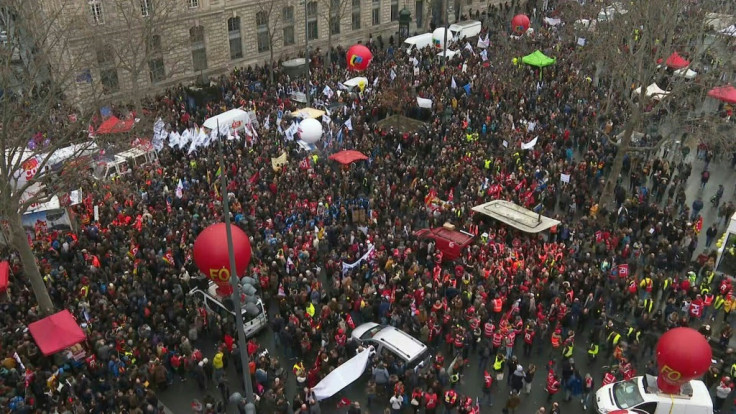Tensions flare in French protests as pension dispute grinds on
It was the fourth day of demonstrations since the protest began on December 5 with a massive public transport strike now in its 36th day.
Tens of thousands of demonstrators took to streets across France on Thursday in the latest mass protests against a pensions overhaul that critics say could cut benefits even while requiring people to work longer before retiring.
Tensions flared in Paris and other cities as some black-clad protesters smashed glass-panelled shopfronts and bus stops, while others hurled paving stones against police who tried to disperse crowds with tear gas.
It was the fourth day of demonstrations since the protest began on December 5 with a massive public transport strike now in its 36th day.

Police said at least 24 people had been detained in Paris, where 56,000 people marched toward the Saint-Lazare train station, according to the interior ministry.
Some 452,000 protesters turned out across France, the ministry said, as teachers and other public-sector employees joined train and metro workers.
The hardline CGT union said almost 1.7 million people protested around the country.
"Teachers like us stand to lose the most. Some could see their pensions cut by up to 100 euros a month!" Marylou Crampette, a 25-year-old school teacher, said at the Paris march.

Unions have staged their biggest show of strength in decades against plans for a single points-based system that would sweep away the country's 42 pension schemes, many offering early retirement mainly to public workers.
The government on Thursday night unveiled two bills that aim to appease the unions by committing to salary rises for teachers and researchers.
However, the unions are unlikely to agree to the measures, which still contain the key sticking point of the "pivot age" -- that would effectively extend the minimum age for receiving a full pension from 62 to 64.

Commuters in Paris were again hit hard by scaled-back metro services, and the Eiffel Tower was shut as during the previous protests.
National train services also remained severely disrupted during what is now France's longest continuous rail strike.
"Between the government's stance of 'We're talking, everything is on the table' and the reality, you have to wonder if it really intends to... take the views of unions into account," CGT's Philippe Martinez said ahead of the Paris march.
Thousands of people also demonstrated in Toulouse, Nantes, Marseilles and other cities against the pension reform, a key plank in President Emmanuel Macron's pledge to shake up the French economy.
Unions have warned the strike could widen, with CGT energy workers this week blockading fuel refineries and depots, raising fears of petrol shortages.
Another day of mass demonstrations has been called for Saturday, and further protests were planned for January 14, 15 and 16, unions said.
A flurry of polls have shown support for the protest eroding in recent days.
"It's normal that they defend their rights, but they're doing it at the expense of the rest of the population," said Cedric Chevalier, 40, a manager at a clothing store in Paris.
Apart from his daily commute having doubled due to the strike, the store's "sales are down at least 20 to 30 percent, which means I'm losing money", he told AFP.
The CFDT, France's largest union, has urged the government to drop the measure and agree to a separate "financing conference" with unions, who want companies to pay more in payroll taxes to cover pension payouts.
Prime Minister Edouard Philippe, who is set to meet labour leaders again on Friday, has said he is open to the idea but wants the "pivot age" of 64 to remain for now in the bill he intends to send to parliament in March.
Budget Minister Gerald Darmanin insisted the measure was "fair" in an interview with the daily newspaper Figaro on Thursday.
"It's certain that we are going to have to work a bit longer," he said.
Copyright AFP. All rights reserved.

This article is copyrighted by International Business Times, the business news leader




















